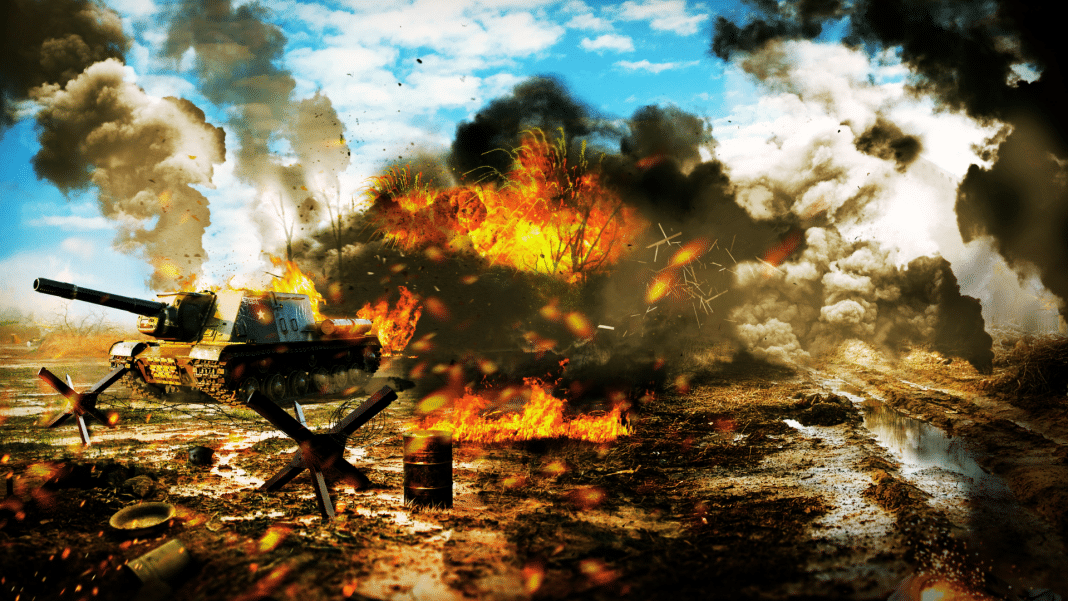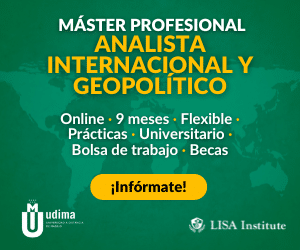We are at a time of unprecedented geopolitical change, and the world will not be the same between now and 2030: this decade will determine who will direct the interests of humanity for the next 50 or 70 years. In this article, Alfonso Casasola, professor of the Professional Master’s Degree in International and Geopolitical Analysis at LISA Institute, discusses the extent to which we are on the brink of a major global conflict and which countries form the blocks that are aligning.
Some will call me exaggerated. But what we are experiencing is a historic moment. For the third time, we are immersed in a great war, in which two blocks are facing each other. On the one hand, those who have held power during the last century, and the aspiring to snatch it away, on the other.
What are those blocks? First, we find the Anglo-American-European Union confluence and its historical allies, and on the other the so-called BRICS, the emerging countries, which want a new world order, a change of roles, where they feel listened to and respected. What are those countries? Brazil, Russia, India, China, and South Africa, curiously encompassing all continents, and packing the largest number of people in the world in their countries, which are also very young, except for Russia, compared to the old west.
What are we witnessing? We are in a moment of unprecedented geopolitical change, and the world will not be the same between now and 2030. This decade will determine who will direct the interests of humanity for the next 50 or 70 years. And except for the Copernican turn of the situation, there is no turning back. All the resources are being put at the disposal of the attempt of the great change, of a change of direction between the influential actors.
➡️ Te puede interesar: Masterclass | Cómo analizar conflictos geopolíticos | LISA Institute
The first stop was Russia, the second, and in my opinion, related, is the Israel-Middle East conflict, (it is not only the problem of Palestine, but at the regional level), and I fear that the third and last stop will be Taiwan and the Pacific conflict (Korea, Japan, China, USA, and Australia). This is the journey that we are witnessing, and that in my opinion we will witness in the coming years. I would like to analyse each of these stages, which end in a global deflagration, the outcome of which is uncertain.
The Russian-Ukrainian war, or the first phase of this Great Global War, has meant an emotional drain on the West, since there has been a paradigm shift regarding the awareness of lasting peace in Europe, since there was no war at this level in Europe since the Second Great War, except for the Balkan War. Perhaps this is one of the objectives of this conflict, and it is to remember the effects of the war, which at any moment can affect all of Europe. In fact, the missile that hit Poland and caused the death of several people, for hours represented a major crisis, being NATO territory. Later, it was proven that it had been a mistake, and the origin of this was not Russian.
On the other hand, it is a long and lasting conflict. It will soon be two years since the start of hostilities over Russia, and it shows no signs of ending. We find ourselves on this European front, in a stable situation, in which the attacks continue by both parties, but it does not seem that Ukraine is advancing considerably, nor is Russia regressing decisively. It gives the impression of a conflict that is entrenched, in which resources and money are being spent on a large scale and represents a continuous weakening of the NATO bloc.
Soon public opinion in the member states will begin to distance themselves from the Ukrainian problem, and military spending will moderate. Russia does not seem to be taking an existential toll from the sanctions, and they consider themselves capable of endurance and resistance for an indeterminate period. Aid from China and other states seems to serve as a network for them.
➡️ Te puede interesar: ¿Cómo terminará la guerra de Ucrania?
Will we last longer with this status quo? Or should NATO enter the conflict decisively and put an end to this European front? This is the big question, which sooner or later the alliance will have to answer, if the situation drags on, as it seems. Will we have to look for an alternative solution, and allow the Russian annexation of the territories of Lugansk and Donetsk, if with this, military spending ends, and a stable truce is achieved, to close this front?
These issues must be resolved sooner rather than later, since the second phase of the conflict, or the second front, is the Middle East, whose virulence is even greater than that of the European front. The Israeli conflict is not only against Hamas, and the Gaza Strip. It’s a war for its existence. It is so serious that the Middle East will not be the same after this conflict. There is no doubt that Iran, if not directly, then through its satellites will enter the conflict. The consequences can be devastating, since the axis of resistance, which mainly includes Iran, Syria, and Lebanon, can form a common front and make the US become directly involved, already acquiring biblical proportions, since Iran would be in the position of commanding troops and facing an open war against the civilization that is not allowed to exist.
➡️ Te puede interesar: Masterclass | Análisis Mundo Árabe e Islámico: Presente y Futuro
This front is the most dangerous, since it can involve the entire region, and make the military resources that should be used were enormous, and the war machinery had to go into full gear manufacturing weapons and ammunition. This would be the main front of the conflict, and if everything developed in a short time, there would still not have been time to close the European front. There would be two areas of operations open at the same time, with two fearsome enemies mainly identified. On the one hand, Russia, and on the other Iran, allies also for the change of cycle and geopolitical order. China for its part, waiting and expectant, without a single scratch, and conflicts far from its borders, as well as US foreign policy (all wars outside my territory).
If this front takes these dimensions, and extends over time, we would already be immersed in the fullness of the third great war, since the Western allies would also enter the conflict, as it is already an existential war of democratic values and the future, vital and economical. Would a nuclear arsenal be used? This is a great question for a measured answer. You can’t live in a world where it disappears. Therefore, they will never be used. Maybe in localized spots, but we will never see Japan’s disaster in World War II again. Nobody cares.
On the other hand, China would have the upper hand, to deliver the final blow, and open the third front of this great conflict: Taiwan. China will wait for the Western bloc to weaken on both fronts open, and within their countries with public opinion divided, and parties with similar ideologies undermining the media field. You are going to be patient and see how events evolve. If the two fronts last until 2025, I have no doubt that Taiwan will be invaded that year, since it will be strong enough to be able to undertake that conflict, and all this even though NATO, the US, Japan and Australia would face this invasion together. Three fronts at the same time cannot be kept open with the same intensity. This is China’s trump card, and it will take advantage of it. Furthermore, the question arises here as to what position India will take. Whether he will really take sides with the Chinese cause of regime change, or will he remain neutral, more concerned about his economic interests and exponential development. Will China leave him or demand its inclusion on the Pacific front?
➡️ Te puede interesar: Masterclass | Análisis geopolítico de la República Popular China
We are immersed in a conflict that can change our lives and the geopolitical order. The year of 2030 it is not trivial. It is the date they have given themselves to divide up the world again. What we do not know is who the hegemonic actors will be, their strength and the amount of pie they will have. I get the feeling that we are going to return to a kind of neocolonialism, but without knowing which countries will pilot it and who will be the victors, whether the old West or the young BRICS.
An opinion article by Alfonso Casasola, Professor of the Professional Master of International and Geopolitical Analyst, of the Expert Course on the European Union and of the International Humanitarian Law Course of LISA Institute.





